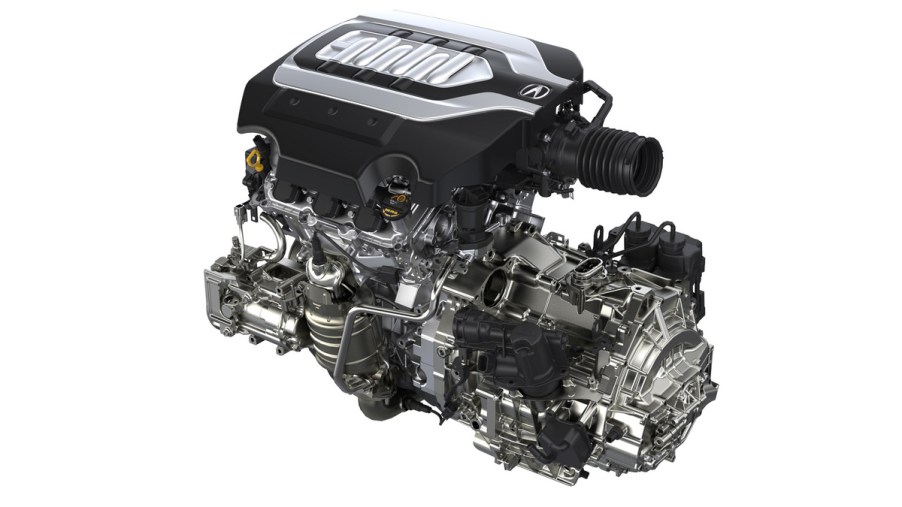
Do Hybrid Vehicles with V6 Engines Make Any Sense?
When we think of hybrid vehicles, we typically think of them as being fuel-efficient and slow. But if you take a look at the hybrid vehicle category, you might notice that a lot of the vehicles on that list actually have V6 engines stuffed under their hoods. A couple of vehicles like the Acura RLX and Porsche Cayenne Turbo come to mind. But if a hybrid system is meant to be a fuel-saving measure, then does attaching a V6 engine to it really make any sense?
A V6 hybrid is typically meant for power
While there are different types of hybrid systems currently used in various vehicles, we’ll stick to looking at the most common applications. In which case, cars like the aforementioned Acura RLX use parallel systems, in which the engine and the electric motor work in conjunction by propelling the car in either full-EV mode or simultaneously when more power is needed. However, a lot of Acura hybrid vehicles like the RLX, the MDX Sport Hybrid, and the NSX also utilize motors at each rear wheel for more power and better traction.
But that’s not always the case. There are also “mild hybrid” setups like those used in the Audi lineup, specifically the A6, A7, Q8, and A8, all of which utilize a 48-volt system to assist with certain driving functions. In this setup, the 48-volt battery powers a small, belt-driven electric motor that sits in place of the alternator. The small motor helps the engine start quicker and activates the start/stop system more aggressively to aid with fuel economy, but it also does equate to a little more power as well.
RELATED: 2020 Acura RLX Sport Hybrid: An NSX in Luxury Sedan Form?

Do the hybrid systems really help fuel economy?
While adding a hybrid system to a Porsche, or even an Acura, might only seem helpful when it comes to making more power, it actually does help with fuel economy as well, at least a little. For example, the RAM 1500 trucks come with the eTorque system, which is a mild hybrid setup much like the one found on the Audis, benefit from an added 2 mpg bump over the non-hybrid trucks. That doesn’t sound like much, but when you’re driving and towing with a powerful V8 engine, every bit of power and gallon saved adds up.
RELATED: 5 Reasons the RAM Rebel Is Better Than the Ford F-150 Raptor

Wouldn’t just a start/stop feature just be sufficient?
Almost every car on the market currently has a stop/start feature, which automatically shuts off the engine when you’re stopped for more than a minute. The amount of fuel saved is typically pretty minimal and there aren’t any power benefits from it either, which is why automakers like Audi and RAM use the mild hybrid setups.

Do the V6 hybrids make sense?
Technically speaking, yes. Of course, we can never expect to get the same stellar fuel economy as a four-cylinder hybrid like a Toyota Prius. But when using a bigger engine, every horsepower made and drop of fuel saved can add up in the long run. The good news is that most automakers are now figuring out how to make their hybrid systems even more efficient and more powerful, which means that we can probably expect to see more hybrid vehicles in the market soon, and at least we’ll know that it all makes sense.



